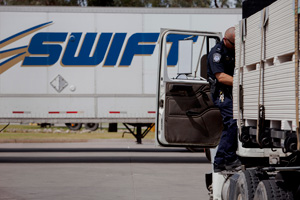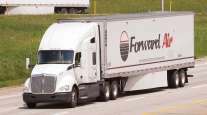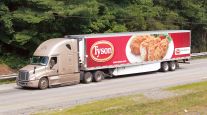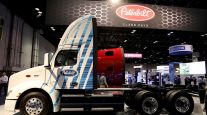Swift Lowers Earnings Based on Pending Class-Action Lawsuit

Swift Transportation reversed course after reporting third-quarter earnings were up 4.7% year-over-year to $38 million on Oct. 24, lowering the number to $24 million, or a 34% decline lower than a year ago.
The Phoenix-based company wrote in a letter to investors Nov. 1 that pending litigation forced it to add $22 million in legal reserves, lowering earnings before tax and interest. As a result, Swift also will pay $8 million less in taxes and thus the total impact is a $14 million decline in overall earnings.
RELATED: Swift Transportation profits rise in third quarter
“Subsequent to the issuance of our letter to the stockholders, but prior to the filing of our quarterly report on form 10-Q with the Securities and Exchange Commission, we received new, unfavorable information regarding certain litigation that was outstanding as of September 30, 2016, related to our Swift Refrigerated segment,” the company said.
The company is referring to the Utah Collective and Individual Arbitration, according to Co-CEO Richard Stocking. Former employees Gabriel Cilluffo, Kevin Shire and Bryan Ratterree filed a class-action lawsuit against Central Refrigerated Service in June 2012, alleging that they were misclassified as independent contractors rather than employees and thus violated the Fair Labor Standards Act.
The U.S. District Court ordered the case into arbitration, which affected more than 3,000 owner-operators who leased a vehicle from subsidiary Central Leasing Inc. on or after June 1, 2009. When Swift bought Central Refrigerated, it became defendants in the case.
“On October 26, 2016 the arbitrator assigned to the case ruled that approximately 1,300 Central Refrigerated drivers involved in the collective arbitration have been misclassified as independent contractors and that they should have been compensated as employees,” according to a Swift spokesperson.
An attorney for the plaintiffs couldn't be reached for comment.
The legal reserve reduced earnings per share a dime to 18 cents, from the 28 cents it reported on Oct. 24. That compares with year-ago earnings of $36.2 million, or 25 cents.
The new projections don’t affect the $1.01 billion in overall revenue, or the revenues for the truckload, dedicated, refrigerated and intermodal segments. However, the lawsuit deteriorated the operating ratio from 123.8 to 127. The overall operating ratio, or the company’s operating expenses as a percentage of revenue, deteriorated to 94 from 91.7. An operating ratio greater than 100 means there were more expenses than revenues, resulting in a net loss, rather than net income.
The truckload unit, Swift’s largest division, reported a 4.2% drop in revenue to $469 million after fuel surcharges were removed. Weekly revenue per truck fell to $3,460 from $3,492 one year ago. Total loaded miles decreased 1.8%.
Swift Refrigerated revenues dropped 8.6% to $85 million. Loaded miles fell 4.1% because the company said some shippers took advantage of a low spot market rates. But the company said prices in both the truckload and refrigerated markets should rebound soon.
“It seems as if they both have bottomed based in what we’re seeing, rates have been pressured in both, but do not appear to be dropping further,” Co-CEO Jerry Moyes said.
Dedicated contract carriage revenue climbed 8.9% to $234.4 million, and weekly revenue per tractor was up 8.1% to $3,603.
Intermodal revenue dropped 8.6% to $92.3 million, and intermodal loads dropped 7% because of difficulty securing freight without compromising on price, the company said.
Swift, which ranks No. 6 on the Transport Topics Top 100 list of the largest U.S. and Canadian for-hire carriers, also lowered full-year earnings 11 cents to between $1.09 and $1.19 from $1.20 to $1.30 due to the litigation.




